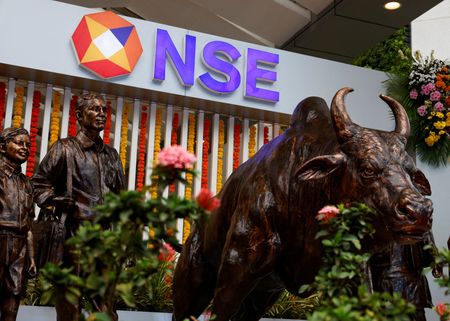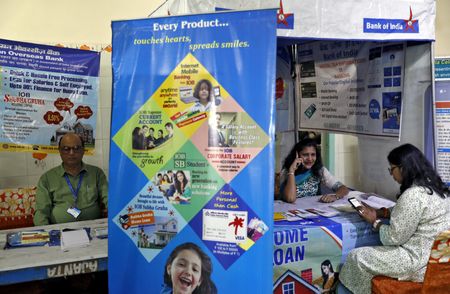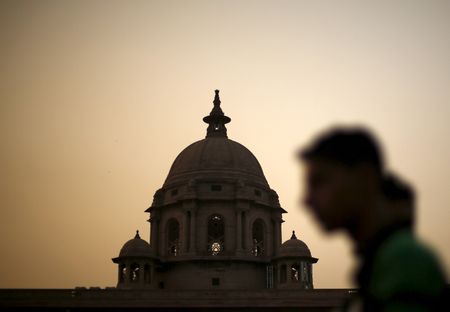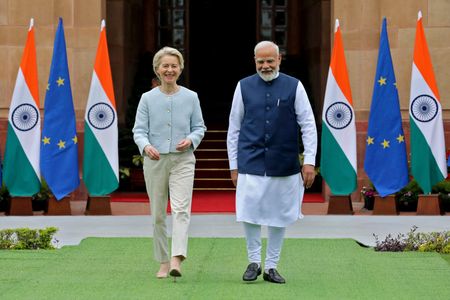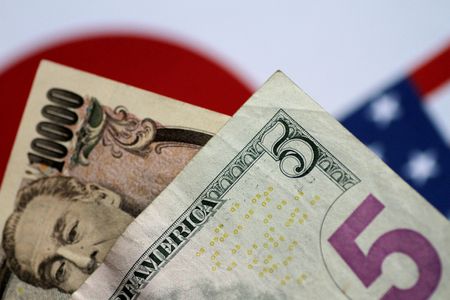By Vivek Kumar M and Bharath Rajeswaran
(Reuters) – India’s benchmark indexes logged their worst day in around five months on Friday, with Nifty 50 posting its longest monthly losing streak since 1996 on pessimism over domestic market conditions.
The benchmark Nifty 50 and the BSE Sensex closed 1.9% lower at 22,124.70 and 73,198.10, respectively. They are down 6% for the month.
Meanwhile, the broader and more domestically focussed mid-cap index confirmed a bear market, falling more than 20% from its September 24 record close, pressured by poor earnings, lofty valuations, looming U.S. tariff concerns and persistent foreign outflows.
Its peer, small-cap index , had confirmed the trend on February 14. Analysts expect the pressure on the indexes to persist.
“Investors will stay away and wait and watch, there won’t be strong buying support in the next month or two, till earnings and economic growth pick up,” said Mahesh Patil, chief investment officer at Aditya Birla Sun Life AMC.
The mid-cap and small-cap indexes fell 11% and 13%, respectively, in February, their worst monthly performance since the COVID-19 pandemic-induced selling in March 2020.
All 13 major sub-indexes fell for the month, with realty and information technology stocks leading the losses.
On the day, the IT index slumped 4.2%, leading losses on the benchmark index, after weak U.S. labour market data added to worries of a potential slowdown in the world’s largest economy may be slowing.
IT firms earn a major share of their revenue from the United States.
Sentiment was also roiled by escalating concerns about a global trade war after U.S. President Donald Trump said that the 25% duties on imports from Canada and Mexico would come into effect on March 4. Trump also proposed an additional 10% tariff on China.
Meanwhile, data released just after market hours on Friday showed India’s economy expanded by 6.2% in the October-December quarter from a revised 5.6% growth in the previous quarter. A Reuters poll had predicted a 6.3% expansion.
(Reporting by Vivek Kumar M and Bharath Rajeswaran; Editing by Mrigank Dhaniwala, Savio D’Souza and Eileen Soreng)

